[Valedictory Lecture at the End of the Second Term of Governor Kayode Fayemi, the Governor of Ekiti State of Nigeria, October 10, 2022]
By Wale Adebanwi
Protocols.
Let me start at the beginning. I will then correlate this with the import of the interregnum in the governor’s political life in Ekiti State for his current and future political life. Subsequently, I will explain how both stages led us, in important ways, to where we are today: that is, the end of the second term of one of the most remarkable governors in Nigeria’s Fourth Republic. I will place this in the context of a reflection on democratic rule in Nigeria in relation to what appears to many as the troubled future of Nigeria. At the center of this reflection however is the role of the scholar-politician in our contemporary political experience.
In the beginning, that is around 2005, a strategy and policy group met every month in Dr. Kayode Fayemi’s Ibadan home to plan the trajectory of his gubernatorial aspiration. The chair of the group was the famous poet and social thinker, Mr. Odia Ofeimun. At our first meeting, the chair invited the man who today is the Governor-elect, Mr. Biodun Oyebanji, to present the perspective from the field in Ekiti State, including what needed to be done in the light of the political intelligence he had gathered from the state. I noticed that there was a certain combativeness mixed with a measure of fretfulness in Oyebanji as he began to make his presentation to the group. Shortly after he started, he declared that since Dr. Fayemi studied war in a university in England, it would be important to emphasize this during the initial consultation meetings around the state. But “the candidate”, as he was identified in the policy and strategy papers written in the period, would not let Oyebanji finish the sentence. He objected to the idea of telling the people of Ekiti that he studied war.
But Oyebanji, a political operative of the first order who knew Ekiti politics like the palm of his hand, would not budge. It was at this point that most of us understood why Oyebanji was simultaneously combative and fretful as he began his presentation. He said something to the effect that “But it is true that you studied war! What is wrong with telling our people so?” It was obvious that before the meeting started, both of them had had a disagreement over this tactic. Oyebanji explained to us that given the climate of fear that the then reigning governor had imposed on the state, Ekiti people would not take anybody who wanted to contest against him seriously, unless they were sure that that potential candidate was someone who was strong enough to confront the “terror” in power. Fayemi’s candidacy would be dead on arrival, he explained further, if he was not presented as a formidable candidate who would not only face up to the incumbent, but could face him down. Therefore, it was important to emphasize to the doubting people of Ekiti State that the candidate studied “war.” After all, haven’t scholars reversed the Clausewitzian principle by concluding that “politics is war by other means” and didn’t the Yoruba insist that “oju ogun laye (the world is a theatre of war)? And was Fayemi not an inheritor of the tradition of valour that is the historic legacy of the Ekiti people as demonstrated in the 16 year-long Ekiti Parapo War – otherwise called the Kiriji War – of the 19th century when the Ekiti rose up to reject the despotic ajeles?
The implication was that the current “ajele” in office in Ekiti State could not scare the man who studied “war” for his doctorate degree! We all agreed and persuaded Fayemi not to discourage his supporters in the state from assuring the people that, though he was a man of peace, he had also spent his adult life studying “war.” That fact was needed to break the ice. The people would be ready to listen and consider his more important qualities that were critical for leadership once they were convinced that he was a man who could lead them in the war to reclaim the state, regain the legacy and nurture that legacy.
READ ALSO: Fayemi’s Legacy In Ekiti And The Possibilities For The Nigeria Agenda
It was one of the first lessons that the scholar-politician learned about power: The knowledge that, in capturing power, you have to mobilize the power you already have, or the perception of that power. I would wager that another lesson that he learned later was what the late British Prime Minister, Winston Churchill, said about the relationship between war and politics. Churchill stated that Politics are almost as exciting as war, and quite as dangerous. In war you can only be killed once, but in politics [you can be killed] many times.”
Now to the interregnum. In the bitterly contested and rigged June 2014 governorship election in Ekiti State, Governor Fayemi lost to the candidate of the Peoples Democratic Party. He and his supporters were convinced that the ruling party had used its command of federal resources and of violence, to illegally snatch his mandate from him. The process that led to the election was marred by violence and there was the likelihood of a break down of law and order after the victory of the PDP was announced. But, for the first time in Nigeria’s electoral and political history, the incumbent and defeated candidate not only conceded defeat within 24 hours, he also invited the governor-elect to a meeting the next day.
Here is a part of the statement issued by Governor Fayemi after INEC announced the results:
I have just spoken with my brother, Mr. Peter Ayodele Fayose, congratulating him on his victory. In a few hours from now, I would be meeting the Governor-elect to discuss the future of our dear state and how we would work together to institute a smooth transition programme. It has been a hard-fought election. As expected, in the course of the campaigns, there were unsavoury episodes as the candidates toured the nooks and crannies of the state to sell ourselves to the people. Elections tend to be highly divisive affairs that often see brother rising against brother. Despite our diverse party affiliations, and regardless of which way we voted on Saturday, we must remember that we are all sons and daughters of Ekiti State. Ekiti is ours to build together.”
By this statement and his subsequent action, Fayemi changed the history of electoral defeat of the incumbent in Nigeria. By what he said that day and did the next day, Fayemi snatched moral victory from the jaws of electoral defeat. This was an example of how to act gracefully towards a candidate that you and those on your side believed was unworthy of the office to which he had been elected. JKF left office in 2014 with that moral victory but added another political victory to that when he returned to the same office in 2018.
Distinguished guests, the point I am making here is not just about the power of example, as important as that is. The greater point is related; it is about commitment to democratic principles, particularly when the principles do not favour you or when you fundamentally disagree with its immediate outcome. By the practical demonstration of that commitment, JKF was able to show that the sustenance of democracy and the strengthening of peaceful succession, both as principle and as process, are more important than his own immediate electoral victory and political ambition. As long as the principle and process were nurtured and preserved, even in the event of judicial contestation of electoral theft, everyone of us will always have the opportunity to seek office, and the polity as a whole will enjoy the transcendental joys of the government of the people by the people and for the people. As it became evident in his return to office four years later, those who are committed to democratic practices can be sure of gaining the credibility not only to test and re-test that commitment but to be remembered as men and women whose fidelity to higher purposes deserved to be celebrated, emulated and rewarded.
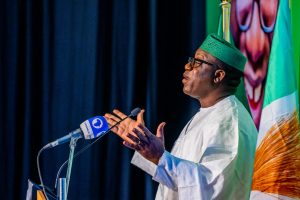
I think it is best as JKF takes his exit as the Governor of Ekiti State and at this stage of his political career, to reflect on the scholar of war as a leader committed to a peaceful transition of power and egalitarian rule. This brings me to the question of Nigeria’s democracy as enfolded in the question of the country’s future. What is the role of the scholar or/and the intellectual, or the scholar-democrat, or better still, the scholar-politician, in this equation?
In my Foreword to the book by Governor Fayemi, Reclaiming the Trust: Transformative Ethos for National Development, first published in 2012, I noted that “As the Kayode Fayemi-led administration in Ekiti State marks its mid-term… it is appropriate for the Governor to reflect on how well he has led the state in fulfilling the challenges of good governance. This is even more so for a man who has spent virtually all his adult life in the struggle for the creation of a better society, not only [for] Nigeria, but for the rest of the continent.” (p. xv). I added that “As a scholar, activist and political leader, Fayemi has a vision of better policies for better lives not solely restricted to Ekiti State. Indeed, any expansive vision of social transformation and egalitarian rule is shareable across territorial boundaries and cultural divides.”
In his public life, Fayemi’s humanist orientation is evident both in his conception of social order as well as in practical politics. As Professor Ladipo Adamolekun notes his Foreword to another of Fayemi’s tetralogy in power, Regaining the Legacy: People, Power and Possibilities (2018), it is important to pay attention to the “unambiguous choice that JKF made when he chose to become a political actor: a commitment to combining thought and action.” This is particularly important in a country in which there is an inverse relationship between thought and action for most of the people who gain political power.
It is critical still given the tradition of power as a political, cultural as well as intellectual responsibility that the likes of Fayemi inherited from that most able of political leaders, the social thinker and state-builder, Obafemi Awolowo. In the Awolowo tradition, the relationship between thought and action is a firm and interminable one. In this tradition, for the publicly-engaged scholar or public intellectual, engagement with power is not only a necessity, it is an ethical obligation. Even direct entry into partisan politics against this backdrop of this ethical obligation makes politics a vocation and not a vacation for the scholar. Though in the late military era, this tradition was not only trivialized, but violated by the simultaneous destruction of the intellectual formations in the country, particularly the university, and the conscription of some scholars and public intellectuals into khaki scholars or palace intellectuals, yet we must remind ourselves of the progressive tradition in our part of the country, of the unity of politics and intellection that is our heritage. Those who are unaware of this tradition, should be reminded that Obafemi Awolowo was not only in himself, what Professor Adebayo Williams succinctly described as, “a constellation of emeriti,” he was drawn to and surrounded by the emeriti. In fact, as JKF himself has acknowledged in a public lecture, we could conclude that, at that point in the political history of Western Nigeria, the recruitment of political leadership from Ekiti State was biased in favour of scholars. Of the three senators that represented the old Ondo State in the Second Republic, two of them were scholars from Ekiti land; that is, Professors Banji Akintoye and David Oke. (The third, Senator Ayo Fasanmi was also an Ekiti man). Another of the closest associates of Awolowo was another Ekiti professor, Professor Samuel Aluko.
Unlike the catastrophic national experience symbolized by what the American writer, Saul Bellow, captures in his famous book, Herzog, as the paradox between strength of mind and political impotence, in the tradition of progressive politics in Western Nigeria, intellectuals do not lose their “intellectuality” in order to become politically effective, as Karl Mannheim assumed. They did not need to suspend their critical virtue in order to engage with the complex challenges of public life.
Again, this is the tradition that the likes of JKF inherited and have been seeking to extend. There is no doubt that people like him are doing so in a totally different political, socio-economic and cultural environment. There have been major changes since the Awolowo era, two of the most important of which are the decimation of the intellectual formation which provided critical support for both political leadership and the scholars/intellectuals in public life or in power and the absence of organic political parties. I mean an organization of settled ideals and a common political horizon. As JKF readily admitted in a recent interview, the parties need to develop “from being election machines to organic parties.” What we have now, he added, are “political alternatives and not alternative politics.”
I mention these two to underscore the different environment in which the scholar-politician such as JKF operates. In addition, I identified this two as a basis for naming the challenges that the JKF generation and the scholar-politician himself face in this era. I do so also to challenge him and others like him to deploy their assets based on the identified heritage as well as their stupendous talents and vantage positions, even as he exits office, in attending to the challenges of their own era – as the Awolowo generation did for their own era. This is pertinent because, as one of those who made critical sacrifices to ensure the transition to democratic rule, the departing governor has a duty to ensure that this shadow of democracy that we have now is converted to a real federal democracy, especially with the egalitarian ethos that is our tradition in this part of the federation – given our recognition of the fact that democracy is not necessarily popular egalitarianism, though popular democracy creates the best conditions for popular egalitarianism.
As we prepare for the general elections in 2023, Nigeria faces six fundamental challenges which none of the existing parties were designed to address. The implication of this is that the solutions lie beyond the framework of the current party politics, even though the existing political parties, whatever their deformities, might have a part to play in this – whether in their current or in their transformed iterations. Three of these challenges are political, the fourth is economic, the fifth is about security, while the sixth is socio-cultural.
The first challenge is whether it is desirable for this much-abused polity to continue as a united federation. People like JKF and others have answered this question in the affirmative. But he belongs to the group of honest and serious-minded brokers who do not dismiss those who question Nigeria’s continued viability even when they radically disagree with such people. If you examine some of the most vociferous voices that want Nigeria’s history to end, particularly from this part of the polity, they are erstwhile fervent patriots who have spent most of their adult lives making sacrifices for the creation of a just, equitable and egalitarian polity in which Nigeria’s stupendous natural and human resources will be harnessed to build an African power state. Their efforts have been frustrated at every turn and they have watched how the energized and resolute termites continue to eat away at the fabric of the national union while claiming that Nigeria’s unity is not negotiable. Any serious political initiative to frustrate this class of people who have, for all intent and purposes, resigned from Nigeria must therefore settle this question in a way that involves addressing the question of political architecture – which is the basis of Nigeria’s corporate deformities and deficiencies.
The second challenge is about this architecture. JKF has spent a considerable part of his public life, before and since gaining political power, reflecting on this question of how to re-engineer the political architecture of Nigeria to make life more livable in what the combined forces of terrorism, fundamentalist Islam, kidnapping, and different forms of hate, if left to their devices, are attempting to turn into a hell-hole. Despite the absurdity that we hear constantly from those benefiting from the collapsing edifice of unearned privilege, there is something fundamentally wrong with the way this country has been run, particularly in the last five decades plus. And that problem is not merely one of governance, it is a structural problem. This country is largely a federation in name only, despite the best efforts of some patriotic forces, including some important social and political forces. We are not asking for a perfect federal state. There is no such thing. But there are some ground rules which have to be addressed. As the massive and unrelenting borrowing by the federal government even to fund the payment of salaries shows, the barn has been stolen dry. And the farmers have gone home. There is no future harvest, unless we call a town meeting and rearrange the political economy of pillage that is the Nigerian “federation.” However, I recognize that, in the present circumstances, there is no sufficient collective will to embrace this task. The absence of that will is also insufficient to lead some of us to abandon the advocacy, even while working with and within the existing system to improve it, even if we cannot transform it yet.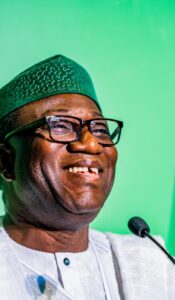
The third challenge is good governance by whatever name it is called. This challenge is often confused or elided by the two sides to the national debate. Those who think that there is no need for restructuring speak glibly about good governance as if that is all that is needed for Nigeria to be turned into a paradise. I call this group the “reformists.” For this group, once you have competent people in power who are capable of delivering good governance, all will be well with Nigeria. For the other group, who insist on a national conference and/or restructuring of the federation, they are convinced that once Nigeria is restructured, all will be well. I call this group the “restructurists.” I suggest that both positions have limitations. Good governance is not sufficient for the deep crisis of Nigerian state. In fact, as evident in the last five decades, good governance is not sustainable in the extant circumstances in Nigeria. Even where you have good governance in one of the component parts of the country, such is the manner of the deep crisis at the centre that those at the centre can, in one broad stroke, or by their inactions, destroy the quality of good governance in the component part. For instance, if they steal most of the money accruing from crude oil sale at the centre, how much can the good administrator do to pursue his or her lofty programmes at the state level? If the national currency loses value, what can a state governor do in the face of an irresponsible Governor of the Central Bank? Beyond these questions, what the core members of the “reformist” group really want to accomplish is to narrow the questions that we can ask about Nigeria’s history and future, and thus constrict the possibilities of national transformation which they regard as a threat to their entrenched interests.
However, while good governance is not sufficient to fix Nigeria’s problems, as the “reformists” generally assume, the “restructurists” must also accept that restructuring, while critical, will not constitute the terminal point for the process of redressing the dark history of national relations and national rule. It is, therefore, important, beyond the institutions and principles, to pay attention to the processes of governance that will follow the process of structural transformation. Yet, there is no gainsaying the fact that a restructured Nigeria will need to ensure that all the elements of good governance are present for Nigeria to be able to meet what Chief Obafemi Awolowo believed fervently was the country’s manifest destiny.
Linked to the question of restructuring and good governance, is the question of the political economy – which is the fourth challenge. I am not talking only about the economy but the ways in which the economy is linked with the politics. You can pay off a substantial part of your national debt, as Nigeria did under President Olusegun Obasanjo, but if you do not transform the political economy, other regimes would emerge that would acquire more debts than you paid off in the past. Nigeria used to be classified as a Heavily-Indebted Country (HIC), I think it should now be designated as a heavily-re-indebted country” (HRIC). As a country, we have a problem that could be described as “debt-recidivism” – that is, the capacity for a heavily indebted country to reoffend after settling its debt.
Our economic horizon induces deep disillusionment. Even while the election fever is upon us, as Ebenezer Obadare of the United States Council on Foreign Relations notes in wondering whether economic collapse will precede political transition in Nigeria: “there is … genuine cause for apprehension as a dire combination of falling revenue, bloated deficit spending, massive borrowing, and spiraling inflation threatens to topple the [Nigeria’s] economy.” International financial institutions have warned that Nigeria’s current economic situation is unsustainable. In the last seven years, public debt has grown thrice more than the combined figures for the previous 16 years. For instance, in the first quarter of this year, the country generated N1.6 trillion naira but spent N4.7 trillion, thus financing the budget deficit of N3.09 trillion through debt. Even government’s official statistics show that, in the first quarter of this year, the amount spent to service (not to repay) debt stood at N1.94 trillion naira as against the total revenue of N1.63 trillion naira. Let me break it down for some members of the audience who might have some problems with high sounding numbers. As at 2020, the share of the national debt per person was $718 dollars – in today’s naira value, that’s more than N500,000 per person.
But the problem, as I noted earlier, is deeper than this. It is not just that what the country pays to service its debt is greater than the revenue accruing to the national purse, the problem is that the dire circumstances of our economy are mere superstructural reflections of the political economy base. It is a profligate and unsustainable political economy that will in the long term destroy any short-term economic growth.
Therefore, in a restructured country with good governance, there will be a need to change the structure of our political economy from a consumptive economy to a productive one. There are several questions that will need to be addressed in a new political economy. Can such a political economy be constructed around the present configuration of states and local governments, glorified and emasculated outposts of an irresponsible federation in name? How do we move away from a monocultural economy as the world moves away from dependence on fossil fuel? How do we harness the energies of our youthful population to turn them from mere statistics into not only a part of the population that produces, but also one that is nurtured in every way possible, both as a group and individuals, to harness their full capacities?
The last two challenges, good governance and a political economy that is fundamentally based on production rather than consumption, are impossible without the security and safety of lives and property – which is the fifth challenge. Since the end of the civil war, Nigeria has never witnessed anything remotely comparable to the current spate of low intensity war. From the Islamist insurgency by the Boko Haram and the Islamic State West Africa Province (ISWAP), farmer-herder clashes to banditry, kidnapping and ransoming and separatist insurgency, no part of the country has been spared the fury of unrelenting blood-letting and massive displacement of millions of citizens. South-west Nigeria, which used to constitute an oasis of peace, has been forced into this cauldron of violence. As the gallant governor of Ondo State, Arakunrin Oluwarotimi Akeredolu reminded the country recently, and as the governor of Kaduna State, Mallam Nasir El-Rufai, did in a different way before him, elected leaders in the different parts of the country cannot fold their arms as the central government betrays its incapacity to stem the tide of the crisis. The truth is that the current overlapping security challenges have been long in gestation. All the unresolved fundamental questions, some of which I have raised here and the attendant economic challenges which, among others have led to the current 32 percent youth unemployment in a country with the largest youth population in the world (70 percent of Nigeria’s population are under 30, and 42 percent are under 15) created these tragic circumstances.
The sixth and final challenge, which is particularly critical for us in this region of Nigeria, is the collapse in socio-cultural value system, the immaterial technology that is at the foundation of every civilization and every democratic polity. The debasement of values that we have witnessed since the mid-1980s, particularly in the last two decades, is astounding. This is not just at the level of leadership. Even the kind of electorate that the current socio-political culture has produced cannot nurture or sustain deep democratic practices and institutions. Again, I say this is particularly critical for us in this part of Nigeria. At the founding of modern democratic politics in Nigeria, Western Nigeria under the leadership of Obafemi Awolowo and his departed successors, Adekunle Ajasin, Abraham Adesanya, Bola Ige and their living peers, turned politics into a morality play, or, if you prefer, ethical performance. Public political life was judged by the quality of devotion to public good displayed. Progressive political leaders in these parts were an example to the rest of the country in egalitarian politics and egalitarian governance. Unfortunately, several years of military rule, followed by years of default military rule in the guise of civil rule, have ensured that, rather than raise the game of the others, this region, for the most part, and despite the gallant efforts of a few, has succumbed to the despoliation that is the core feature of Nigerian politics. As I argued recently, rather than force the rest of the country to attain the Highest Common Factor (HCF), south-western Nigeria has been forced to submit to be Lowest Common Denominator (LCD) – described, at one point in this state, as “stomach infrastructure.”
Which brings me to this. In his post-office life, what does JKF propose to do about these challenges given the legacy that he embodies – as symbolized by the famous cap that he wears?
After four years in office under some of the most difficult economic and political circumstances, including some years as federal minister preceded by the four years of his first term, JKF might plead that he deserves some rest. But the country faces an uncertain future which precludes anyone who has had any significant role to play taking a leave. If JKF does not want to return to exile, it has to be clear to him that he must redouble his efforts to ensure that Nigeria is reclaimed in an obviously much more difficult circumstances than when he reclaimed his own mandate twice in Ekiti State. Gladly, there is sufficient number of people capable of strategic thinking, planning and action to form the critical core of this mission.
Why is this important and why is JKF critical to the next phase of the battle for Nigeria’s future? I have addressed some of the fundamental challenges that Nigeria faces, including why it is important to confront these challenges. I will now speak to why the most critical faction of the Nigerian political elite that are best equipped to address these challenges are those we broadly call progressives. Thus, let me conclude by addressing the outgoing governor directly regarding the role he has to play in this historic charge.
Governor Fayemi, you spent the better part of the first half of your life at the barricades, working hard to make Nigeria a democratic, truly federal and egalitarian polity. Are you prepared to spend the other half of your life in a country not of your dreams but of your worst nightmare? If not, then your next task is cut out for you. Happily, the new barricades that are being raised do not require that you go into exile. Given the devastating effects of the challenges that I have outlined, the human toll resulting from them, and Nigeria’s staggering and devastating Human Development Index, there is no room for further error. In terms of the three basic dimensions of human development, that is, a long and healthy life, access to knowledge, and a decent standard of living, in the latest report, Nigeria ranks 163rd among 191 countries in the world – behind Togo, Côte d’Ivoire and Cameroon.
Why am I laying this charge on your shoulder? I have three reasons:
One, the progressive movement in Nigeria, though in remission, is largely organized around resolving the six core issues that I have outlined. Even though a section of this formation has given up on Nigeria, the core of this group still believes that Nigeria is savable and that, if these issues are resolved, particularly the structural problems, Nigeria will not only have a chance to survive, but she will also be able to meet what Obafemi Awolowo famously described as her manifest destiny.
Two, as we move towards 2023, the more things change, the more they remain the same. Elections are not the way to save the country. While the next elections are unavoidable as a way to continue the formalist democratic journey, they cannot, at a fundamental, structural level, facilitate the creation of the egalitarian polity that the progressives have always hoped for – an ideal to which you have devoted your public political life. Therefore, even as you join your political party in the current struggle for power, your people will expect you to recognize the limitation of the next elections in the more important struggle to ensure that Nigeria’s history survives this century.
Three, the progressive movement which has, since the late colonial era, been at the vanguard of making Nigeria a democratic, truly federal and egalitarian polity and which has prevented what Professor Adebayo Williams described as the “homogenization of the Nigerian ruling class,” is currently somewhat in remission. Therefore, at this juncture in your political life, it is pertinent to ask what you propose to do about the problems identified. You have to go beyond personal political ambition to embrace collective political responsibility that is the heritage of your forebears as well as your political forerunners. As I speak, there is vacuum of leadership in the progressive formation that needs to be filled by a visionary, selfless, committed, intellectual, who is devoted to strategic thinking and planning. Again, as you prepare to join the short-term campaign of the party in power, I invite you to consider these matters regarding how to lead the long-term movement of the party of the people.
For those of us who remain fervent believers in the Nigerian project, JKF being a notable member of this group, we are convinced that no other polity on the African continent, indeed, in the black world, has better potentials to be a great country: A land literally, as affirmed by our old national credo, “flowing with milk and honey.” But far greater than that is nature’s endowment as regards human potentialities and possibilities. No other people in the black world have our human resources. And I am not talking only in terms of numbers. In every corner of this otherwise wonderful country, in the existing totality, we could not have asked for more from nature. In fact, we can say that the natural and human arithmetic was, initially, already rigged in our favour. What is left is for us is to rework the regrettable equation of squalor that had resulted from this national arithmetic to produce a mathematics of national glory. We require urgently, beyond party affiliation, a national movement to achieve this goal.
JKF, I happen to know that you have the political intelligence, the vision, the experience and the necessary national and international networks to take up this task. More importantly, you are a product of a tradition of public intellection, egalitarian politics and social democracy geared towards addressing these questions. Your past public life, between and betwixt civil society, political society and the state provides the warrant to confront these challenges. You are also an institution-builder, a deft politician with the capacity to swim with, and at the same time, swim against the current.
As a scholar-in-power, a remarkable activist who has made genuine contributions to the struggle for constitutional rule, a public administrator, a progressive political leader with significant capacity for patience and strategically deployed taciturnity – which can be unnerving to both friends and foes alike – though you have found yourself in an amebic political system, in your post-office political life, if you cannot lead, you must definitely join, the movement to build a healthier political system. On page 222 of your book, Reclaiming the Trust, you declared that Nigeria “need(s) a movement to escape further calamity.” As you leave Ekiti State in capable hands, are you prepared to lead this movement?
Distinguished guests, ladies and gentlemen, please grant me the indulgence to dedicate this valedictory lecture to two remarkable women who were, in different ways, the pillars of the JKF era in Ekiti State. For a leader who committed himself to gender-inclusivity at the start of his public life, no other two women could reflect this reality better than Erelu Bisi Adeleye-Fayemi and the late Deputy Governor of Ekiti State, Mrs. Olufunmilayo Aduni Olayinka, née Famuagun. As Governor Fayemi would readily admit, without Erelu’s muscular support, unflinching confidence and shinning assuredness – not to talk of her no-nonsense comportment – the governor would not have been able to accomplish his public, political purposes. As for Mrs. Olufunmilayo Olayinka, as running-mate to JKF, a partner in the struggle for the restoration of the people’ mandate, and as deputy governor between 2010 and 2013, the late banker was a study in quiet grace, steely determination and uncommon refinement. May Olufunmilayo Olayinka continue to rest in peace. The public lives of these two womanifestoes remind us again that no system deserves to be called a democracy where women are not central to the configuration and operation of power at every level.
As I congratulate the Governor-elect who will step into your shoes, Governor Fayemi, I wish you well in your post-office life and hope that you will recommit yourself to the efforts to make this country truly a federal republic, a democracy, and an egalitarian polity.

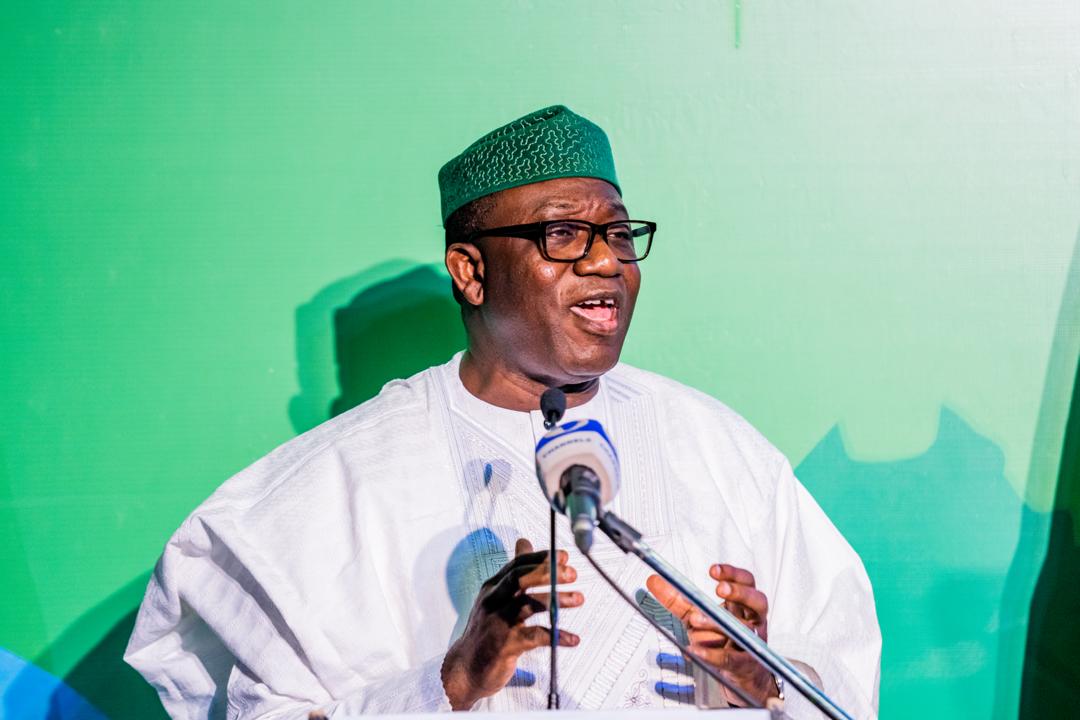

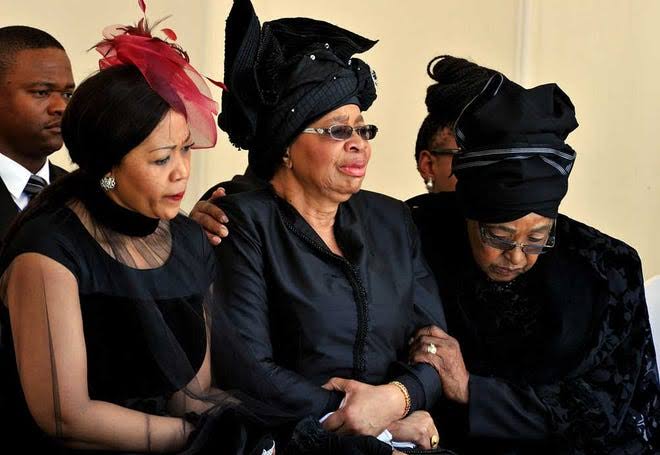










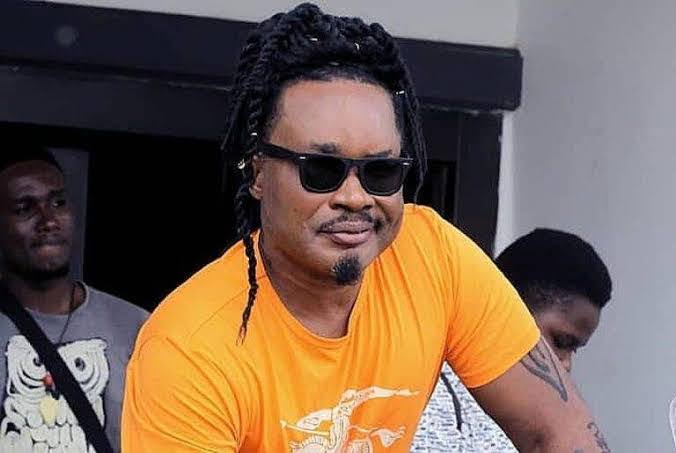

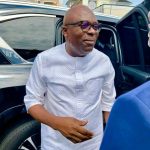
Follow Us